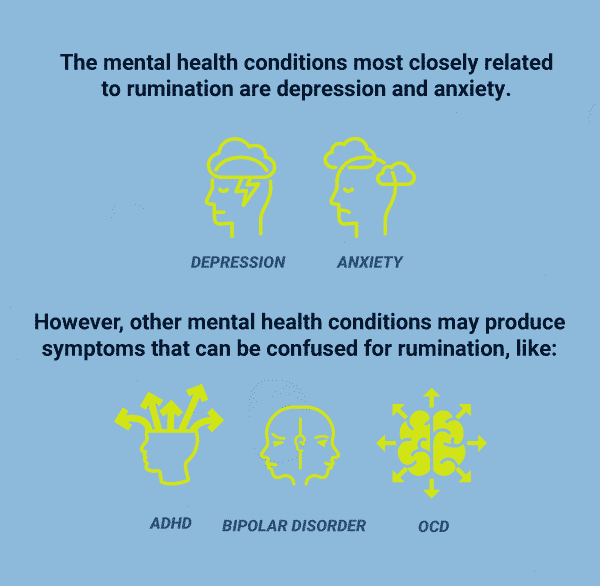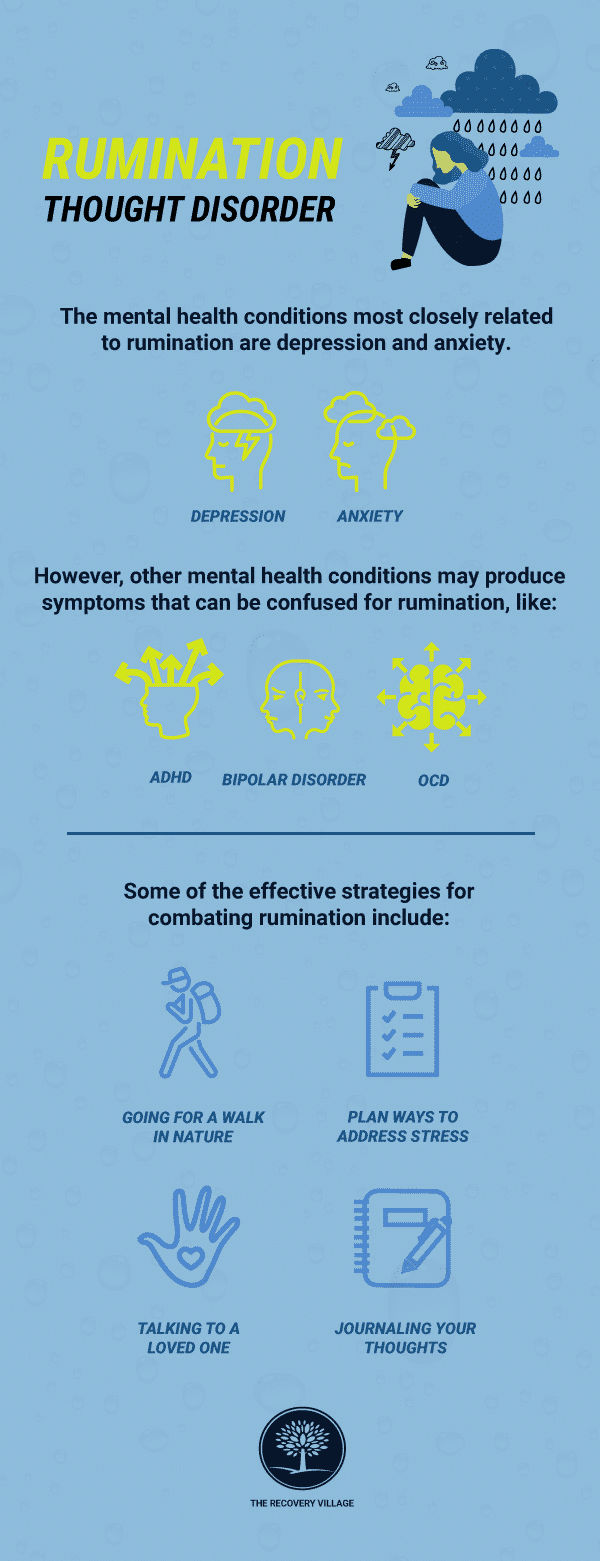While everyone grapples with rumination from time to time, some demographics may be more prone to this detrimental pattern of thinking than others.
Ruminationis the tendency to repetitively focus on a problem without arriving at a solution. Rumination is a significantmental health issue, as people prone to ruminating thoughts are at a higher risk for certain mental health conditions, such as depression and anxiety. By learning more about rumination and reviewing current rumination statistics, a person can better understand the symptoms and situations affecting their life or the life of a loved one.
Prevalence of Ruminating Thoughts
Everyone hasruminating thoughts. Some people ruminate often, while others only ruminate occasionally. Since rumination is a symptom of mental health conditions rather than a separate condition of its own, gathering statistics about the prevalence of rumination can be difficult. However, experts do know thatwomenruminate more often than men, andolder peopleover the age of 62 ruminate less than younger people.
Rumination and Related Mental Health Conditions
To a person who ruminates frequently, rumination becomes a filter through which all life events and situations pass. This distorted view of the world can lead to manyunwanted consequences, including:
- More intense stress
- Increased depressive symptoms
- Reduced effectiveness in problem-solving
- Desire to push away social support
- Interferences in daily activities like cooking, cleaning and hygiene
The mental health conditions most closely related to rumination aredepressionandanxiety. However, other mental health conditions may produce symptoms that can be confused for rumination, like:
Treatment Can Be Life Changing. Reach out today.
Whether you are struggling with addiction, mental health or both, our expert team is here to guide you every step of the way. Don’t wait— reach out today to take the first step toward taking control of your life.
- Impulsivity and poor attention characteristic ofattention-deficit hyperactivity disorder
- Racing thoughts and mania common inbipolar disorder
- Obsessive thinking linked toobsessive-compulsive disorder

Ruminating Thoughts and Suicide Connection
Research shows that ruminating thoughts areassociated withincreased thoughts of suicide. The amount of rumination a person experiences can also predict the level of suicidal ideation that person will have in the future. Since rumination tends to be rigid and consistent, a person with intense ruminating thoughts may continuously think they could be better off dead, which is a pattern that can lead to suicide.
Brooding Rumination Prognosis and Outlook
Mental health professionals use specialized measurement tools or interviews to assess a person’s level of rumination or brooding. As mentioned, all people take part in some degree of rumination. Higher levels of rumination are related to a poorer prognosis and more negative outlook. People with low levels of rumination have a smaller risk of depression, anxiety, stress and suicide. These people may also respond better to treatments to improve rumination or other symptoms of mental health conditions.
Statistics on Treatment for Ruminating Thoughts
While each person’s thinking style is unique, professional treatment can help individuals avoid engaging in the circular, negative thinking that characterizes rumination. Some of the effective strategies for combating rumination include:
- Going for a walk in nature
- Setting aside time to plan ways to address sources of stress
- Talking to a loved one
- Journaling your thoughts

The statistics on rumination treatments do not exist because current therapies focus on addressing depression or anxiety, rather than the specific symptom of rumination. Fortunately, treatment approaches likecognitive behavioral therapycan be useful for counteracting rumination.
Treatment for ruminationwill frequently require a focus on substance use issues as well. People may seek out substances as a way to decrease rumination, which can result in addiction and physical dependence.
Rumination and substance useoften co-occur. If you or a loved one live with both of these issues, consider callingThe Recovery Village. A helpful representative can direct you toward effective treatment and help you begin the recovery process.Reach out todayto get started.









